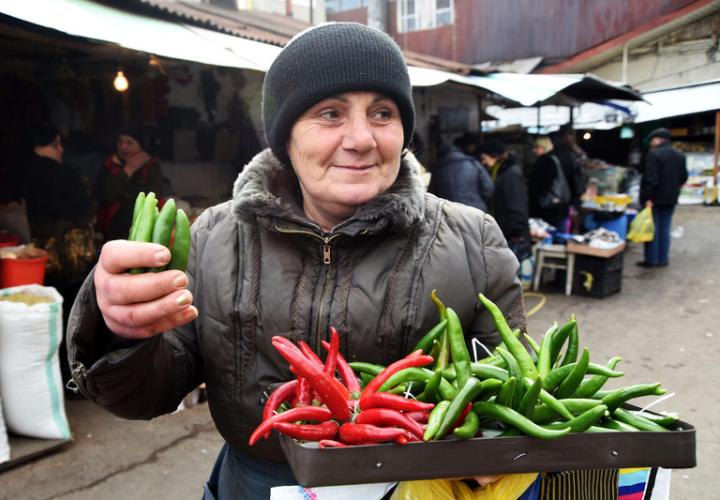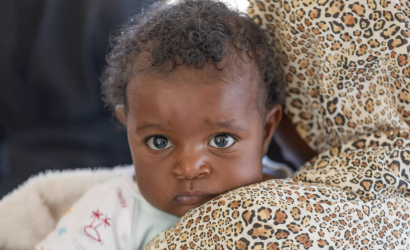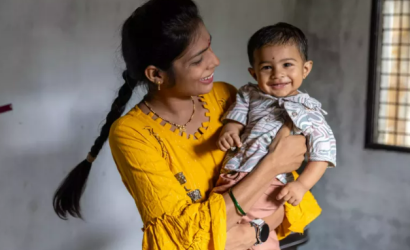With a population of roughly 3.7 million people, situated where Asia and Europe meet, making connections is inherent to the land and people of Georgia. This carries over to the United Nations country team where there is a strong will to collaborate on nutrition in support of the well-being and productive future of the country's population. In this article, we highlight various collective actions, including joint programming, pursued by UN-Nutrition Member Agencies in Georgia. We also shed light on the enabling factors that have given rise to and nurture inter-agency collaboration after speaking with the nutrition colleagues in-country.
The nutrition situation
As Georgia made the jump from lower-middle income status to an upper-middle income country,[1][2] it is also undergoing a ‘nutrition transition’. Highly-processed foods high in sugar, sodium and/or fat such as sugar-sweetened beverages (SSBs) are pervasive while the consumption of nutritious foods like fruit and vegetables is low.[3][4][5] Furthermore, sedentary lifestyles have become commonplace.[3][4] This, in turn, presents a series of nutrition (and health) challenges, not least overweight and obesity.[6]
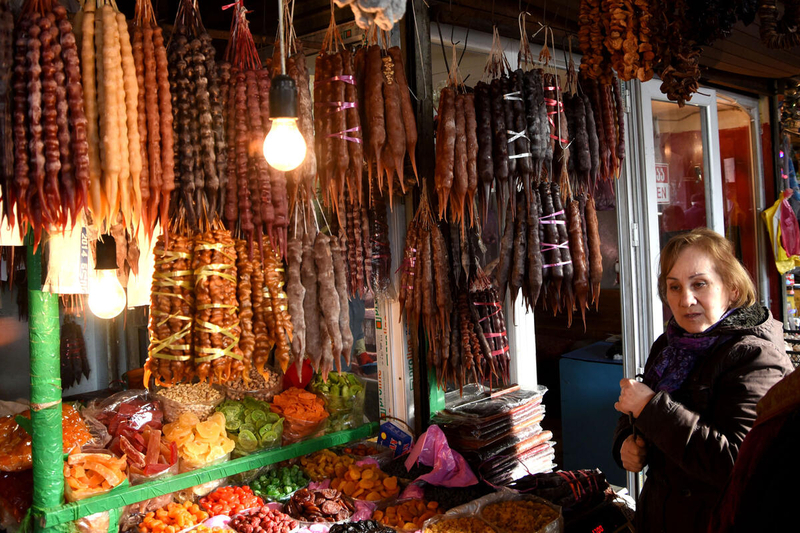
With that said, the country has made a considerable dent in the prevalence of overweight among children under five years old, which dropped from 20.8% in 2005 to 6.0% in 2018.[5] A MICS survey, conducted in 2005, yielded a slightly different prevalence (15.2%),[7] raising some questions about data comparability. Nevertheless, there is general agreement that overweight among children under 5 years old has decreased notably. On the other hand, overweight continues to soar among older children, adolescents and adults.[5] Approximately two-thirds of adult Georgians are overweight of which one-third is obese according to the results from the national STEPS survey on risk factors for non-communicable diseases (NCDs).[4]
The country is also contending with other nutrition challenges. Despite numerous programmatic interventions, the exclusive breastfeeding rate in Georgia has stagnated for decades (MICS 1999, 2005 and 2018), remaining below 20%. This shows that sporadic interventions will not suffice to improve the situation. It is also important given exclusive breastfeeding’s ability to both protect against undernutrition in childhood and overweight and obesity in later life stages.[8] Despite high levels of adult overweight and obesity, nearly one in three Georgians is moderately or severely food insecure according to the Food Insecurity Experience Scale.[9] Additionally, anaemia among women of reproductive age remains a public health concern, which approaches 30%.[5] The country is, therefore, facing both nutritional deficiencies and excesses. UN-Nutrition Member Agencies recognize that their ability to unite for cohesive action is crucial to supporting the government with its unfinished nutrition agenda.
Composition of UN-Nutrition in Georgia
At present, four United Nations agencies are active in the nutrition arena in Georgia. These include: the Food and Agriculture Organization of the United Nations (FAO); the International Fund for Agricultural Development (IFAD);[10] the United Nations Children’s Fund (UNICEF); and the World Health Organization (WHO). Their collaboration occurs on an ad hoc basis and is primarily linked to joint programmes and key moments like the recent national conference on obesity, held in November 2024, and the completion of the UN-Nutrition country survey in June 2024. The United Nations Resident Coordinator is encouraging inter-agency collaboration on nutrition and supports plans for a new joint programme. Below are some examples of how this is playing out in different facets of nutrition.
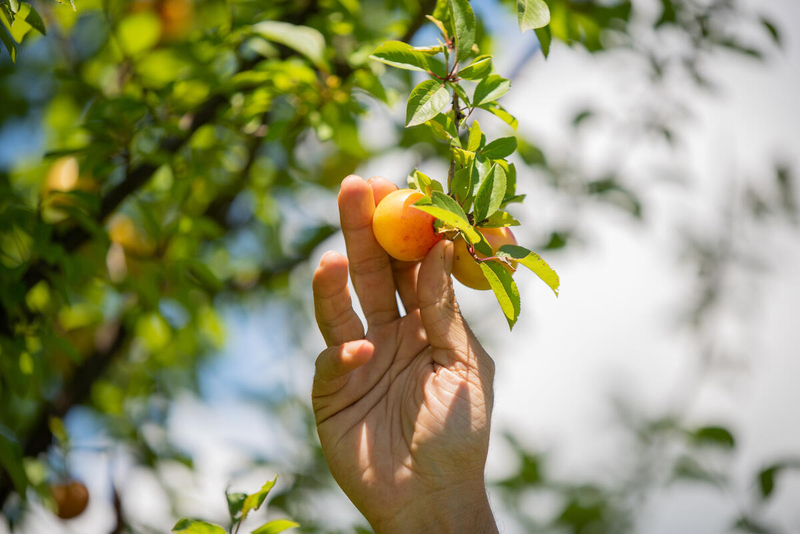
First-ever national obesity forum helps find common ground
Organized by WHO, the “Policy dialogue: Tackling obesity in Georgia, from evidence to action” attracted over 100 participants, including the deputy ministers of Environmental Protection and Agriculture, Science, Education and Youth, and Health and Social Affairs, health practitioners, chefs and physical activity specialists. FAO and UNICEF representatives also participated with the latter presenting on the distinctions between School Nutrition Programmes and School Meal Programmes. The UNICEF intervention stressed the importance of implementing nutrition interventions as an integrated package that also encompasses nutrition education and physical activity, tailored to the country context. “Obesity is a binding area for all of us because of its multiple determinants – genetic, dietary, social and physical activity. It can help us to link-up our work across the health, agriculture and education sectors,” mentioned Kakha Gvinianidze, National Professional Officer for NCDs from WHO Georgia. Diverse anti-obesity tactics from health taxes, including taxes on SSBs, exclusive breastfeeding as a double-duty action (against undernutrition and overweight/obesity) and obesity management were discussed during the conference, among other topics.
Leveraging schools as a delivery platform and students as change agents
In 2023, FAO and UNICEF came together and formulated a proposal for a joint programme on school nutrition to help address food insecurity, prevailing inequities and nutrition challenges, including overweight and obesity. The idea is to pilot an expanded school meals programme in certain municipalities alongside other components of a school nutrition package. At present, the government school meals scheme covers kindergarden only. Additionally, the project seeks to raise public awareness about the importance and benefits of adopting healthy diets from sustainable food systems. While the nutrition colleagues from FAO and UNICEF are eager to proceed to implementation, funding is lacking. “No child should go through their school years without access to nutritious meals or the chance to learn healthy habits that last a lifetime. This programme could be a game-changer for the health and future of children across Georgia, but we can’t make it happen without support,” stated Iamze Mirazanashvili, Nutrition Focal Point at the FAO country office. The United Nations colleagues continue to seek financing and partnerships to launch this initiative.
Food waste reduction
Multiple United Nations agencies are also rallying around a joint programme on ‘SDG Localization’ through the Joint SDG Fund. Initiated in July 2024, FAO, the United Nations Development Programme (UNDP) and UNICEF are carrying out various activities under this umbrella. The Joint Programme aims to empower local governments and communities in Georgia to be change agents for achieving the Sustainable Development Goals (SDGs) by 2030. To this end, the programme is primarily focused on three entry points: (1) food systems; (2) social protection and decent jobs; and (3) digital connectivity. It blends FAO’s technical expertise in food systems and food security with UNICEF’s youth outreach and UNDP’s specialized services for strengthening local governance. One aspect of this effort is to promote public awareness about food systems transformation and food waste.[11] These joint efforts are complemented by additional activities carried out individually by United Nations agencies. This includes FAO support for the adoption and implementation of the Law on Food Loss and Waste Reduction and Food Donation in Georgia, enacted in 2023, including the establishment of food banks with the private sector.[12]
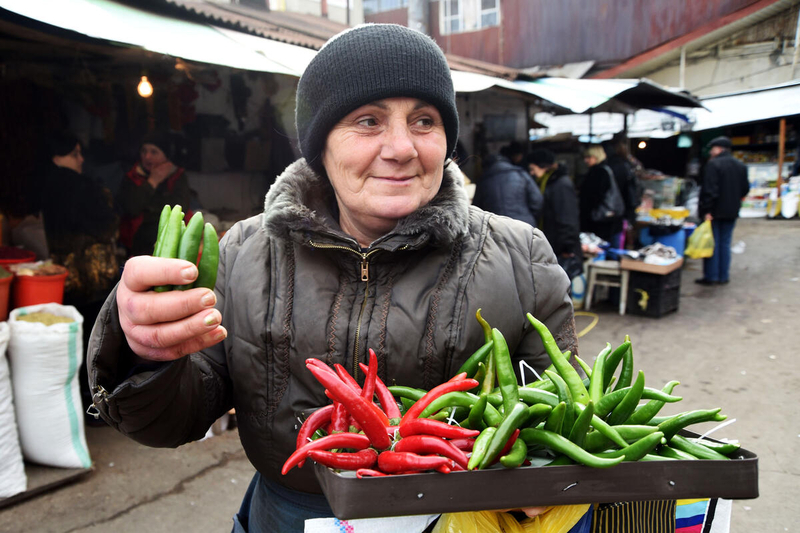
Banding together to raise public awareness on food safety
Healthy diets are instrumental for meeting daily nutrient requirements. Similarly, food safety is essential for nutrient absorption. FAO-WHO collaboration has also materialized in the context of OneHealth.[13] The two United Nations agencies came together to celebrate World Food Safety Day on 7 June 2023 with other stakeholders such as the Ministry of Environmental Protection and Agriculture, the National Food Agency, the National Center for Diseases Control and Public Health, and Technical University. This provided an opportunity to amplify the key message “Food standards save lives.” These joint efforts have helped increase awareness about the importance of food safety standards as well as ways to avoid foodborne diseases. Two major events were held in the capital city of Tbilisi to make sure audiences of every age, including children, were reached with such messaging. Participants gathered at Rike Park and the agrarian market for thematic, informative and entertaining activities. These attractions were followed by a public lecture where experts spoke about zoonotic and foodborne infections, the importance of traceability of animal-source foods and “farm to table” principles in improving food safety. The celebrations have since inspired action to help prevent, detect and manage foodborne risks, contributing to improved food security, nutrition and human health. For example, FAO and WHO are collaborating on the topic of anti-microbial resistance with national institutions.
Looking ahead
These are some of the ways United Nations agencies are joining forces on nutrition and supporting integrated action across multiple systems (food, health, education and social protection) in Georgia. As highly-processed foods and SSBs increasingly dot the country’s food landscape and lifestyles change, the social and economic determinants of malnutrition take on increasing complexity, underscoring the need for robust causal analysis, collaboration and integrated action. For example, regulation of marketing of breastmilk substitutes and foods high in fats, sugars and/or salt to children are pressing issues, including within the realm of social media in today’s age of digitalization.
According to the 2024 SOFI report, public spending on food security and nutrition in real terms increased in Georgia between 2018 and 2022.[9] This signals commitment from the Government of Georgia to tackle its nutrition challenges, recognizing the role of healthy diets in that fight. While this is promising, additional resources are needed. Now a middle-income country, efforts to attract overseas development assistance for nutrition have become more difficult. Nevertheless, there may be important lessons from the country’s marked reduction in childhood overweight which could potentially support similar successes for other age cohorts and countries. Opportunities to better embed optimal breastfeeding practices in the country’s food systems transformation agenda may be another ripe opportunity for collaboration among UN-Nutrition members in-country and help reverse the negative trend in exclusive breastfeeding. With the Paris Nutrition for Growth Summit on the horizon and the momentum around school policy from the recent national obesity forum, the stars may be aligning to fund the proposed joint programme on school nutrition.
References
[1] World Bank. 2019. New country classifications by income level: 2019-2020. In: Data Blog. Washington, DC, World Bank. [Cited 3 January 2025]. https://blogs.worldbank.org/en/opendata/new-country-classifications-income-level-2019-2020
[2] Grass FactCheck. 2016. According to the World Bank’s classification, Georgia has moved into the category of upper middle income countries. In: Grass FactCheck, Tbilisi. [Cited 6 January 2025]. https://factcheck.ge/en/story/22462-according-to-the-world-bank-s-classification-georgia-has-moved-into-the-category-of-upper-middle-income-countries
[3] WHO. 2023. Physical Activity Factsheet 2022: Georgia. Copenhagen. https://www.who.int/europe/publications/i/item/WHO-EURO-2022-6594-46360-67071
[4] WHO & National Center of Disease Control and Public Health of Georgia. 2018. Non-communicable diseases risk-factor STEPS survey, Georgia, 2016. Tbilisi. https://extranet.who.int/ncdsmicrodata/index.php/catalog/223/related-materials
[5] PATH. 2022. Country Nutrition Profiles – Georgia. In: Global Nutrition Report. Seattle, USA. [Cited 6 December 2024]. https://globalnutritionreport.org/resources/nutrition-profiles/asia/western-asia/georgia/
[6] WHO. 2023. WHO acceleration plan to stop obesity. Geneva (Switzerland). https://www.who.int/publications/i/item/9789240075634
[7] State Department of Statistics, Georgia. 2008. Multiple Indicator Cluster Survey: Household , household listing, women and children's files, 2005. Tbilisi, Georgia: State Department of Statistics and New York (USA) UNICEF
[8] WHO. 2017. Double-duty actions for nutrition Policy Brief. Geneva. https://apps.who.int/iris/bitstream/handle/10665/255414/WHO-NMH-NHD-17.2-eng.pdf
[9] FAO, IFAD, UNICEF, WFP and WHO. 2024. The State of Food Security and Nutrition in the World 2024 – Financing to end hunger, food insecurity and malnutrition in all its forms. Rome. https://doi.org/10.4060/cd1254en
[10] While IFAD collaborates with other United Nations agencies on nutrition in Georgia, it does not participate in the specific joint activities highlighted in this article.
[11] Reducing food waste is not only important from an efficiency standpoint in terms of resource utilization. It can also help mitigate climate change in view of greenhouse gases emitted from decomposing food. Furthermore, improving food waste management can foster increased food security, contributing to increased food availability and presenting opportunities to redistribute nutritious foods, that would otherwise be wasted, to vulnerable groups.
[12] Additional information about FAO-led advocacy for this new legislation on food loss and waste is available in the United Nations Georgia Annual Report 2023 available at https://georgia.un.org/sites/default/files/2024-05/Annual%20Results%20Report%202023.pdf.
[13] OneHealth is an integrated approach for fostering human, animal and planetary health, recognizing the interconnectedness of those three dimensions.
